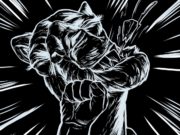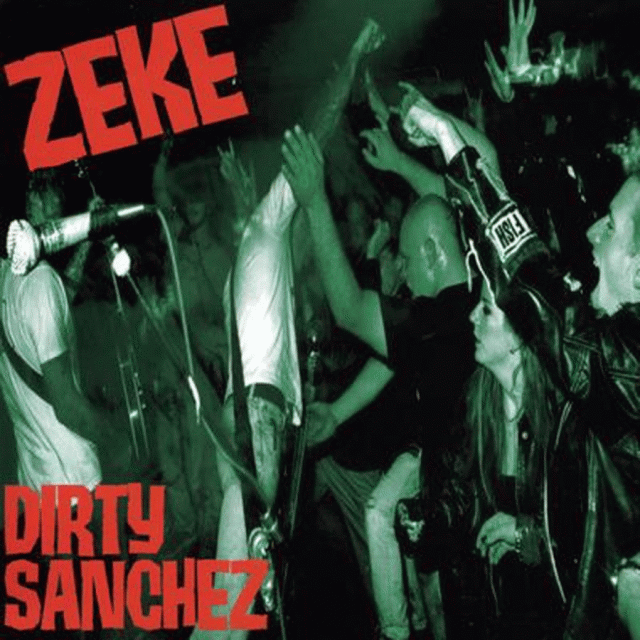Two decades ago, new albums from McMaster & James, Travis, Fu Manchu, Ghostface, Zeke and others were spinning away in my portable CD player. Here’s what I had to say about them back then (with some minor editing):
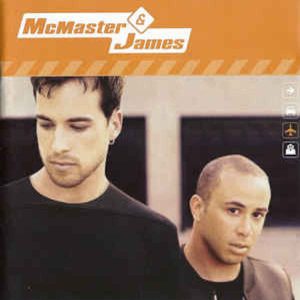 McMaster & James
McMaster & James
McMaster & James
No matter the musical genre or era, Winnipeg always seems to produce one act that hits the mark. In the hippie-rock ’60s, it was The Guess Who. In the blue-collar metal ’70s, it was BTO. In the alt-rock ’90s, The Crash Test Dummies. In the bubble-pop ’00s, here comes a new Next Big Thing boy band to call our own: McMaster & James.
For those locals who just emerged from their basement Y2K shelters, let’s recap: Two years ago, Luke McMaster and Rob James were a Top 40 duo called 2Face, playing the hits night after night as the house band at 8Trax Cabaret. Sometimes they slipped one of their own songs into the set. The tunes went over well enough that when one of their demo tapes reached BMG Canada, it signed the pair to its ViK label. Now they’re wading into the teen-beat fray, going up against the likes of Britney, Christina, BSB and ‘N Sync.
And judging by their debut disc, they should easily be able to hold their own. This self-titled 10-song offering has all the necessary elements for success in the bubblegum trenches — blue-eyed soul melodies, waist-deep harmonies, spry hip-pop backing tracks, dance-floor grooves, and most important of all, song after song about how they want you, need you, love you and don’t want to live without you, baby, oooh, yeah. You think I’m kidding on that last one? Check the track list: Love Wins Everytime, Sweet Sensation, There Will Never be Another, Don’t Hold Back Your Love, It Must be Love, and on and on and on. Pretty much every lyric comes straight outta Boy Band 101. Sadly, but not surprisingly, so does much of the music, which more or less alternates between sticky-sweet BSB ballads and harmless dance-pop — aside from first single Love Wins Everytime, which earns extra credit and capitalizes on two, two, two trends at once by marrying its boy-pop melody to a zippy Ricky Martin groove.
Still, every now and then a flash of originality, a glimpse of the boys’ potential, finds its way through the cliches — a sexily rasped aside or an impressive vocal flourish here, a sophisticated Philadelphia soul melody or a bang-on Hall and Oates harmony there. These are the moments that suggest there just might be more to M&J than meets the ear. Maybe, just maybe, once they find their feet in the music biz and get beyond the Teen People starmaker machinery, they might actually turn out to be pretty decent tunesmiths and singers. If they’re lucky, they might even grow into Winnipeg’s next Next Big Thing — a grownup pop band to call our own.
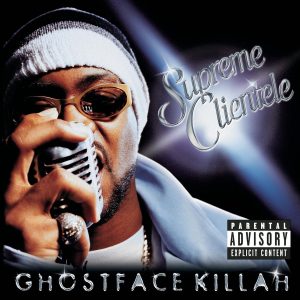 Ghostface Killah
Ghostface Killah
Supreme Clientele
There are now three things you can count on in life — death, taxes and a new album monthly from at least one member of the Wu-Tang Clan. Predictable as its existence may be, though, this eccentric sophomore disc from rapper Ghostface Killah also packs one pleasant surprise: It’s good. Damn good. Although sometimes seen as one of the nine-man Clan’s more minor players, the limber-lunged Ghost truly comes to life on Supreme Clientele, artfully updating the all-too-familiar Wu recipe — sparse ‘n’ sinister bass-heavy grooves, off-balance beatboxes and spookhouse piano — with his own formula of complex blaxploitation licks, freewheeling production tricks, intriguing samples and avant-garde scratches and cuts. Sure, like most rap discs lately, it’s too long-winded — especially when it comes to endless skits, another unfortunate Wu trademark. But if we can count on Ghost to drop an album as supremely impressive as this every now and again, he can count on us to be his eager clientele.
 Travis
Travis
The Man Who
The title is borrowed from Oliver Sacks’ schizophrenia study The Man who Mistook his Wife for a Hat — a nod to this Brit quintet’s split-personality sound, which is equal parts emotional pop and cerebral art-rock. Both sides are still in evidence on this fascinating sophomore album, but this time, they’ve merged into one cogent mindset — albeit a somewhat depressed (and depressing) one. The Man Who’s 10 lush tracks have the dreamy jangle and downbeat piano melancholy of Rufus Wainwright or Ben Folds but with only flashes of their compensatory ironic wit. Instead, they lighten the load with the occasional glam-noir guitar lick or bit of sophisticated, Radiohead-style post-pop production. It’s all quite exquisite, really, but not buoyant enough to balance dreary lyrics like “It really is the end of the line / So sorry that you turned into driftwood,” delivered in singer Fran Healy‘s deadpan half-falsetto. And that’s one of the singles! Now that they have their personality under control, Travis might want to consider a mood elevator.
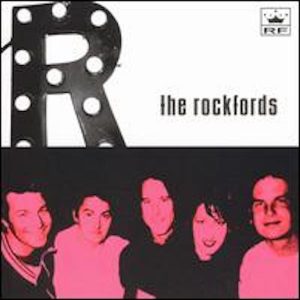 The Rockfords
The Rockfords
The Rockfords
Keeping track of all the Pearl Jam offshoot bands — Temple of the Dog, Mad Season, Hovercraft, Three Fish, Brad, yadda, yadda, yadda — is almost as tough as keeping up with Wu-Tang Clan releases. The latest? The Rockfords, featuring guitarist Mike McCready. Like most of PJ’s moonlight gigs, it’s a long way from the post-grunge rock and raw-wound emotion of their day job — a whole decade away, in fact. With the help of some childhood bandmates and a tough ‘n’ tender female vocalist, McCready reconnects with his ’80s-rock basement-band days here, serving up a dozen competent, if uninspiring pop-rock numbers fuelled by crunchy guitar licks, radio-ready hooks and singalong choruses straight from the back catalog of Pat Benatar, Missing Persons, The Pretenders and Heart (one track even has Nancy Wilson on vocals). Temple of the Dog and Butterfly, anyone?
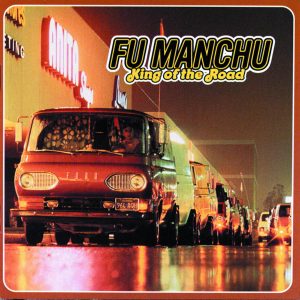 Fu Manchu
Fu Manchu
King Of The Road
Cars, sex and money have always been the holy trinity of rock lyrics. I don’t know if SoCal stoner rockers Fu Manchu get many dates. And I suspect they aren’t exactly swimming in cash. That leaves them with one thing to sing about: Their wheels. And, dude, do they make the most of it. Their latest, King of the Road, is a masterpiece of cowbell boogie-van metal. After taking a misdirected detour into skate-punk on 1997’s The Action is Go, singer/guitarist Scott Hill and co. have pulled a U-turn, put the pedal to the metal and sped back to the desert-rat, bong-haze blues-rock of earlier discs such as In Search Of … and Daredevil. And you know what that means: Wah-wah-power-chord guitars that rev and grind like dirt bikes, bass that throbs like a muscle car at a red light, vocals that scratch and howl like vintage Ted Nugent and hot-rodding hesher riffs that split the difference between Black Sabbath and Blue Cheer. In other words, this van’s a rockin’ — so don’t come a knockin,’ brah.
 Zeke
Zeke
Dirty Sanchez
Four punks from Seattle. Two guitars and one bass. Three chords. Amps on 11. One gas-gargling singer. About 100 tattoos. Two middle fingers — the drummer’s — held straight up in the air between every beat. Two speeds: Really, really, insanely fast — and faster. Their fourth killer album. Sixteen instant punk classics in 21 minutes. Shortest song: Rip & Destroy, 33 seconds. Two song titles with the F-word. One vocal sample of the Nuge. One Fleetwood Mac cover — Rhiannon — delivered like an angry, drunken Motörhead. You do the math. For me, it adds up to greatness.
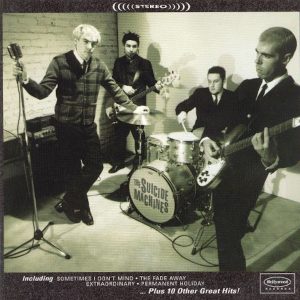 Suicide Machines
Suicide Machines
Suicide Machines
Ignore their self-destructive handle; Detroit’s Suicide Machines are one band that definitely don’t have a Kevorkian complex. They used to be a ska-punk outfit, but now that the genre is deader than Bush’s career, they’ve suddenly “evolved” on their self-titled third album, scaling back the herky-jerk scritch-scratch for the power-popcore of chart-toppers such as Offspring. Still, it’s obvious they’ve done their homework. These 14 tracks (including a cover of I Never Promised You a Rose Garden) have all the requisite guitar crunch, catchy hooks and singalong choruses. Heck, there’s even the mandatory expletive-laden rap-metal offering. It’ll probably cost them whatever remained of their old fan base. But it’s like they say: What doesn’t kill you makes you stronger — although not necessarily better.
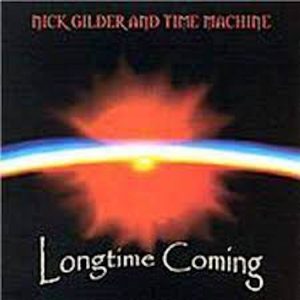 Nick Gilder & Time Machine
Nick Gilder & Time Machine
LongTime Coming
Time Machine? Couldn’t Nick Gilder have named his band something a little less mockworthy — like, maybe, The Whatever-Happened-Tos? Ill-conceived as that handle is, however, there’s no denying its dead-on accuracy. This lifeless comeback disc from the onetime Sweeney Todd vocalist is a shameless, undiluted blast from the past, with Gilder rocking and rasping his way through 11 slices of ’80s-vintage arena-pop that sound like Bryan Adams and Corey Hart’s castoffs. Including — are you ready? — new and remarkably unimproved human-jukebox versions of his two hits, Roxy Roller and Hot Child in the City. Which gives me an idea for the name of his next band: Nick Gilder and Karaoke Machine.
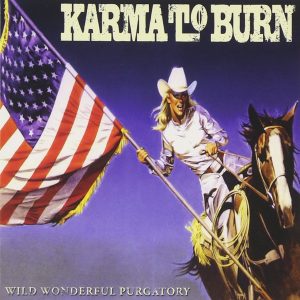 Karma To Burn
Karma To Burn
Wild Wonderful Purgatory
If rock ‘n’ roll is the kingdom of the lazy, Karma to Burn are masters of their domain. When this Virginia stoner-rock trio lost their singer, they didn’t bother getting a new one, opting to become an instrumental trio. Now, they don’t have to worry about lyrics. Hell, they don’t even bother with titles — the dozen tracks on this sophomore CD go only by numbers: Thirty One, Twenty, Seven and so on. Too bad their musical style also plays by the numbers — it’s an amalgam of Fu Manchu/Nebula fuzz-rock crossed with some heavy Metallica thunder. Another thing they didn’t bother to do: Write solos or melodies to take the place of vocals. Instead, they just chug away relentlessly, sounding like what they are — a decent band that really needs a singer. Maybe they’ll work on that. Then again, probably not.
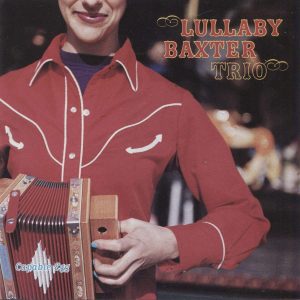 Lullaby Baxter Trio
Lullaby Baxter Trio
Capable Egg
Obviously, Montreal’s Angelina Iapaolo hasn’t been paying attention. Otherwise, she’d know that if she wants to get anywhere in the music biz, she needs to be a teen-poop bimbo with breast implants — not a witty, endearingly off-kilter vocalist who only began performing two years ago under the cutie-pie name Lullaby Baxter (there is no trio). And certainly not one who writes spacy, bittersweet cocktail confections about roosters in love, hopscotch and snoring horseys, which she croons in a sweetly unvarnished voice, artfully backed by new-wave jazzbos oranj symphonette. Who does she think she is? Canada’s distaff answer to Tom Waits? The most enchanting, original songwriter I’ve heard lately? Perhaps even the best new female artist of the year? Well, OK, she’s all those things and more. But don’t think she’ll get away with it — not if Britney has anything to say about it.
 Sarah Cracknell
Sarah Cracknell
Lipslide
Thanks to Austin Powers, people think of swinging ’60s London as one long episode of Cockney Laugh-In — all crushed velvet, shagging jokes and cartoon go-go beats. But thankfulluy, some haven’t forgotten the great pop — from Lulu, Dusty and Burt Bacharach, to name a few — that went with all the bad paisley and Beatle boots. For a decade, U.K.’s Saint Etienne have been keeping the ’60s pop flame lit; here, sublime vocalist Sarah Cracknell picks up the torch. Like her band’s efforts, her previous solo CD and countless contemporaries — perhaps most notably Stereolab — Lipslide injects the sunny melodies of the ’60s into the dreamy, hypnotizing netherworld of ’90s trip-hop to create soothing, post-modern disco lullabys. The difference is, she does it without the ironic derision; whether she’s swooning serenely to chirpy horns or breathing seductively in your ear, you can envision her singing these tunes on Ready, Steady, Go, in a mod miniskirt and white boots — but with tongue nowhere near cheek. Yeah, baby.
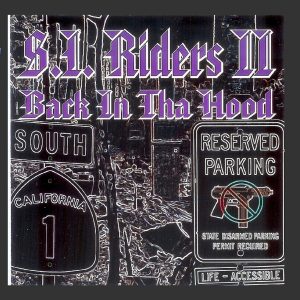 S.I. Riders II
S.I. Riders II
Back In Tha Hood
Near as I can tell, S.I. stands not for Sports Illustrated but for Street Institute, presumably a reference to the ‘hood smarts of duo Clever Kisum and DJ Silk. Unfortunately, this L.A. twosome’s sophomore album only makes you think of other things S.I. doesn’t stand for — like Startlingly Innovative. Or even, sometimes, Slightly Interesting. From start to finish, Back in tha Hood is as unimaginative as its title — just the umpteen millionth album of West Coast G-funk full of Jeep-pumping beats stolen from Dre, melodies and lyrics borrowed from P-Funk and full-mouthed rhymes about rolling deep in Compton wit’ yer homies to mack cheddar from the player-haters. Ultimately, what S.I. really stands for is Sadly Irrelevant.
 DJ Rap
DJ Rap
Learning Curve
For months, influential indie music mag CMJ ran letters berating them for putting a cleavage-heavy shot of sexy British mixmistress DJ Rap on the cover. OK, so she’s hot; don’t hate her because she’s beautiful. After all, one spin of her accomplished new disc, Learning Curve, is all it takes to see she’s not some talentless bim cashing in on her looks. Deftly staking out a place for herself on the exact midpoint between rap, acid house, pop and electronica, Rap (real name: Charissa Saverio) confidently mixes sultry sex-kitten vocals and stylish, pumping house grooves with smart songcraft, proving herself just as adept at drafting melodies and lyrics as she is at twiddling knobs and programming machinery. No matter what her curves look like, Learning Curve is a thing of beauty.
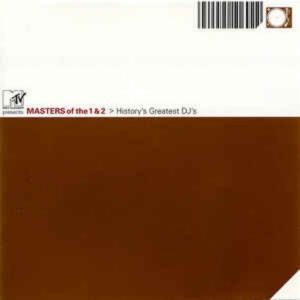 Masters Of The 1 & 2
Masters Of The 1 & 2
Various Artists
No, it’s not a dance step — the 1 and 2 is the nickname for the Technics 1200 turntable, the instrument of choice among DJs and mixmasters. Fittingly, this MTV-sponsored compilation spotlights steel-wheel virtuosos new and old. In the classics category are Grandmaster Flash and the Furious Five, A Tribe Called Quest and, for some reason, Malcolm McLaren. It’s the young turks who rule the day, however; the wicky-wick scratching and sampledelic hip-hop of Peanut Butter Wolf, Mix Master Mike, and DJ Qbert should silence anyone who still thinks DJs just play records. Now, if only MTV actually played any of this music …
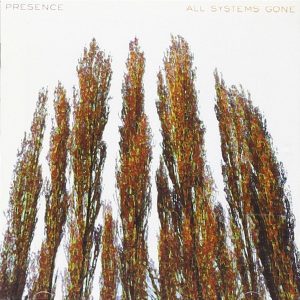 Presence
Presence
All Systems Gone
They may share their name with a Led Zep disc, but that’s as close as this U.K. dance outfit gets to rock ‘n’ roll. What Presence presents on All Systems Gone is what has come to be known as deep house — sort of a cross between trip-hop and disco that’s smoother and less dubby than the former and more song-oriented than the latter. Simply put, it’s mellow ’70s disco dolled up in today’s high-tech finery. Not that there’s anything wrong with that; after all, it’s worked just fine for Air. It works equally well for Charles Webster, Presence’s majordomo, who spins warm dark grooves that have the chilly tempi, muted beatboxes and subatomic bass of Tricky’s work with Massive Attack. Of course, it doesn’t hurt that former Attack diva Shara Nelson is behind the mic for much of this CD, gracing Webster’s squishy synths and knob-twiddling with her dreamy, heaven-sent tones. Thanks in no small part to her presence, Presence is mandatory.
 John Lennon
John Lennon
Imagine
I’ve got the press release but, frankly, I’m still unclear why EMI is reissuing this 1971 classic now — apparently it has something to do with this being the 20th anniversary of Lennon’s death. Yeah, and … ? Oh well, whatever the reasoning, you can’t argue with the album — indisputably one of Lennon’s finest moments, with gems including Jealous Guy, Oh Yoko!, How Do You Sleep? and, of course, the title cut. All of which have been remixed and remastered for this release, with sharper highs, crisper edges and cleaner separation. The sweet idealism of Imagine and the spitting venom of Gimme Some Truth were never clearer. Never mind the flimsy excuses; why not just rejuvenate the rest of his catalogue?
 The Beach Boys
The Beach Boys
Greatest Hits Vol. 3
The ’70s and ’80s weren’t exactly The Beach Boys’ golden age: Brian Wilson’s mental health was on that long, slow slide into the sandbox, their Good Vibrations days were long past, and they’d left their longtime label for a vanity imprint called Brother. Even so, now and then they were still capable of the old magic, as Greatest Hits Vol. 3 — subtitled The Best of the Brother Years, 1970 – 1986 — verifies. Rock and Roll Music is the biggest hit of the set, but it’s the more obscure tracks that rise to the forefront. Like The Whole World, a burst of vintage Beach Boys sun, complete with “auuuuum-dop-diddit” backups. Or the psychedelic Surf’s Up, intended as the centrepiece for the lost Smile album. Or the cool covers of Peggy Sue, Come Go With Me and California Dreamin’. Amazingly, none of this is new or unreleased — it’s just that few folks were listening the first time around. Now we know better. The Brother years may not have been the best of times, but it turns out they were far from the worst.









